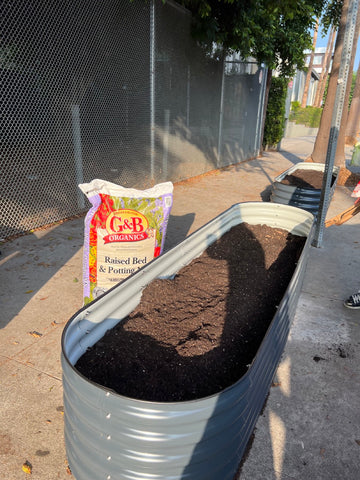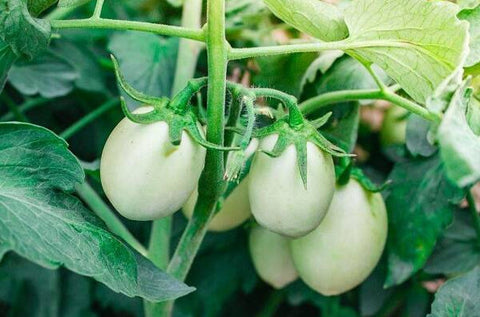Knowledge from Olle Garden Bed:How to use harnessing the Power of Plant Relationships in Your Garden
The health of your garden beds directly impacts the well-being of your plants and the overall productivity of your garden. Soil plays a crucial role in providing essential nutrients to your plants, and if the soil is impoverished, your plants won't thrive. Therefore, conducting a soil test in the area where you plan to cultivate your garden beds is vital.
Soil testing is a valuable tool that ensures your soil is healthy enough to nourish your plants effectively. This test measures the soil's pH level, as well as the content of potassium, nitrogen, and phosphorus. These elements are crucial as they facilitate the proper delivery of minerals and nutrients to the soil. To conduct a soil test, you can easily purchase testing kits online and follow the instructions provided.
Utilizing Mulch
Experienced gardeners have discovered that using mulch on the soil surface can significantly improve the overall condition of the garden. Mulching holds numerous benefits for your garden. It aids in retaining soil moisture, and as it decomposes over time, it enriches the soil with nutrients.
Moreover, mulch helps control weed growth throughout the garden, preventing erosion, and acts as a natural deterrent for many pesky pests. Embracing mulching can even enhance the overall appearance of your garden, giving it a healthier and more attractive look.

Harnessing the Power of Fertilizers
Fertilizers are one of the most common methods to enhance the overall health of your garden. There is a wide variety of fertilizers available, so conducting thorough research to find the one suitable for your garden is essential.
Some fertilizers contain harsh chemicals that may actually harm your garden or the surrounding environment. On the contrary, fertilizers, when used appropriately, supplement the soil with essential minerals and nutrients, enhancing your garden's overall condition. It encapsulates these nutrients within the soil, making it easier for plants to access minerals vital for their growth.
Compost - The Organic Gardener's Gold
For environmentally conscious gardeners, compost is a treasure trove of organic goodness. Composting your kitchen and garden waste transforms them into nutrient-rich humus that can be incorporated into the soil. This natural process enhances the soil structure, improves its water retention capacity, and supports Beneficial microorganisms.
Compost acts as a slow-release fertilizer, providing a continuous supply of nutrients to your plants throughout the growing season. Its ability to balance soil pH and improve aeration makes it an excellent choice for maintaining healthy garden beds.
Managing Irrigation Wisely
Proper irrigation is fundamental for garden success. Different plants have varying water requirements, and over watering or under watering can lead to stress and diseases. Understanding the water needs of your garden plants and adjusting the irrigation accordingly will lead to healthier, more resilient plants.
Consider using water-saving techniques such as drip irrigation or soaker hoses to deliver water directly to the plant's roots, reducing water wastage and preventing foliage wetting, which can lead to fungal issues.
Incorporating Companion Planting
Companion planting is a gardening technique that harnesses the beneficial relationships between certain plants. For example, some plants emit natural substances that repel pests harmful to their neighboring plants. By pairing complementary plants together, you can create a balanced ecosystem that helps protect your garden from pests and diseases.
Furthermore, some plants have the ability to fix nitrogen in the soil, benefiting neighboring plants by providing them with a vital nutrient. Understanding these relationships and incorporating companion planting in your garden beds can lead to healthier and more robust plant growth.
Harvesting and Pruning
Regular harvesting and proper pruning are essential for maintaining the health of your garden beds. Harvesting ripe fruits and vegetables promptly encourages further production and prevents plants from becoming overburdened, which could affect their overall vitality.
Pruning, on the other hand, removes dead or diseased plant material, improves air circulation, and encourages the growth of new, healthy shoots. Regular pruning ensures that your plants direct their energy towards fruitful growth, leading to healthier and more abundant harvests.

Embrace Organic Pest Control
Maintaining a balance between garden pests and beneficial insects is crucial for a thriving garden. Rather than resorting to chemical pesticides, consider embracing organic pest control methods that do not harm the environment or beneficial insects.
Encourage natural predators such as ladybugs, lacewings, and praying mantises to establish themselves in your garden, as they feast on harmful pests. You can also use neem oil, garlic spray, or insecticidal soap to repel or eliminate pests naturally.
Continuous Learning and Adaptation
Gardening is a dynamic process that requires ongoing learning and adaptation. Different plants, climates, and seasons demand adjustments in garden care and management. Stay curious and open to learning new gardening techniques, and don't be afraid to experiment with new plant varieties or cultivation methods.
Remember to document your experiences and observations in a garden journal, as this will serve as a valuable resource for future planning and decision-making.
In conclusion, successful gardening involves a deep understanding of the intricate relationship between plants, soil, and the environment. By regularly testing and nurturing your garden beds, embracing organic practices, and staying receptive to learning, you can create a flourishing and rewarding garden space that will bring joy and satisfaction for years to come. Happy gardening!
